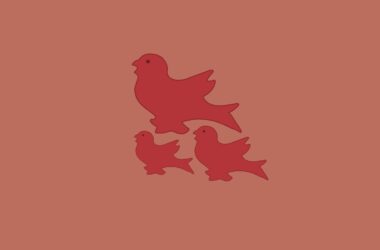On Feb. 2, the Arts Undergraduate Society (AUS) convened for a General Assembly (GA) to discuss a motion to strike in opposition to McGill’s current reopening plans. The GA was scheduled after a petition organized by former Students’ Society of McGill University (SSMU) President Bryan Buraga received the required 200 signatures. Since the beginning of the pandemic, Buraga has been vocal about his disapproval of McGill’s COVID-19 management and of the school’s decision to resume in-person activities amid the Omicron surge in Quebec.
According to the AUS constitution, the quorum to hold a GA is 150 AUS members, while the quorum to pass a resolution for an AUS strike or boycott is 500 students. At the GA, the number of attendees oscillated between approximately 145 to 160 students, prohibiting the motion to strike from being put to a vote and at times, when less than 150 members were present, pausing the entire assembly.
Dhruv Mehndiratta, U1 Arts, consulted with Buraga in developing the petition to hold the GA and campaigned in favour of a strike. Mehndiratta believes that despite the GA’s inability to reach a quorum, the number of attendees reflects an increase in student willingness to participate in McGill politics.
“Having 145 people consistently for the better part of two hours on a Wednesday night [during] midterm season is definitely an achievement,” Mehndiratta said in an interview with The McGill Tribune. “It definitely shows that the student body as a whole is getting more active in McGill politics.”
Since the motion to strike could not be put to a vote, it was amended to demand a well-defined stance from the AUS on the return to in-person learning instead. The amendments call on the AUS to oppose McGill’s current reopening plans and to affirm its solidarity with striking student associations. The new motion also demands that a COVID-19 Safety Mobilization Committee be established, with a mandate to organize a demonstration to advocate for safer in-person learning and hybrid options for immunocompromised students.
The amended motion passed with 124 in favour, nine against, and 30 abstaining. The resolution is now awaiting ratification, which is done through an online ballot sent to all AUS members. The referendum ballot was emailed to the student body on Feb. 7 and will close at 5 p.m. (EST) on Feb. 10.
Shlomo Enkin Lewis, U2 Arts, also campaigned for an AUS strike. Lewis believes that institutional flaws restrain collective movements in the AUS.
“While I was canvassing for this GA, I spoke with lots of students who were very supportive of the need for hybrid options, but did not know that the GA was taking place,” Lewis said in an interview with the Tribune. “There are real barriers both to how information spreads through the Arts faculty and the absence of the existing organized institutions taking charge and spreading this message.”
Buraga was responsible for moving the motion to strike and for amending the motion for an AUS response. He believes that there are systemic barriers to organizing a strike in the AUS.
“In the cases of the School of Social Work and the Faculty of Law, the way that those [faculty associations] are organized makes it so much easier for collective action,” Buraga said in an interview with the Tribune. “The Faculty of Law requires a referendum and a GA for discussion, whereas in the AUS having 500 people show up to a GA rather than just going to referendum poses an institutional challenge to organizing people collectively.”
Despite the GA’s inability to reach quorum, Buraga remains optimistic about the future of the strike movement.
“I wouldn’t characterize [the low number of attendees] as the strike movement losing steam,” he said. “I would challenge this narrative and say that the strike movement is coming up along institutional barriers that have been set for them.”









